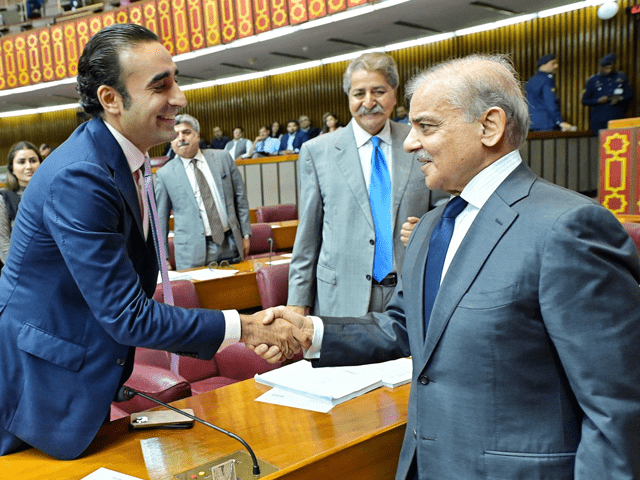After having extended crucial support for the federal budget, the Pakistani peoples’ party (PPP) should officially join the federal government in July, the distribution of ministries likely to be finalized next month, sources told Express News.
This decision comes after weeks of tension between the PPP and the PakSitan Muslims League in power (PML-N) on budgetary allowances and controversial tax measures, which caused strong criticism of the PPP. The party accused the government of having sidelined the Sindh and threatened to retain the support of the budget unless its requests are responded.
However, the blocking collapsed when the government has accepted a certain number of key concessions, including a 20% increase in the budget for the Benazir income support program (BISP) and the decline in the powers proposed for the Federal Board of Revenue (FBR) to stop taxpayers without a mandate.
Read more: Bilawal explains why PPP supports the federal budget
Addressing the National Assembly Thursday, the president of the PPP, Bilawal, Bhutto Zardari, said that his party would support the federal budget after the government accepted its requests for the recovery of the BISP allocation to 716 billion rupees, income tax exempt for employees, gaining up to 100,000 rupees and reducing the sales tax on solar panels.
Familiar sources with the negotiations indicate that the budgetary support of the PPP has paved the way for a wider power sharing arrangement with the PML-N, negotiated partly by the establishment. They added that the establishment had assured that the leaders of the PPP, there would be no change of government and that political continuity was essential to national stability.
“The message was clear: the system must continue – and it will,” said a source close to talks.
Efforts are also underway to bring other political forces on board as part of a broader consensual construction initiative.
In the next phase, the PPP should be part of the Punjab government, sources said. Backchannel’s talks between the two parties are already underway, although a final agreement has not yet been concluded.




